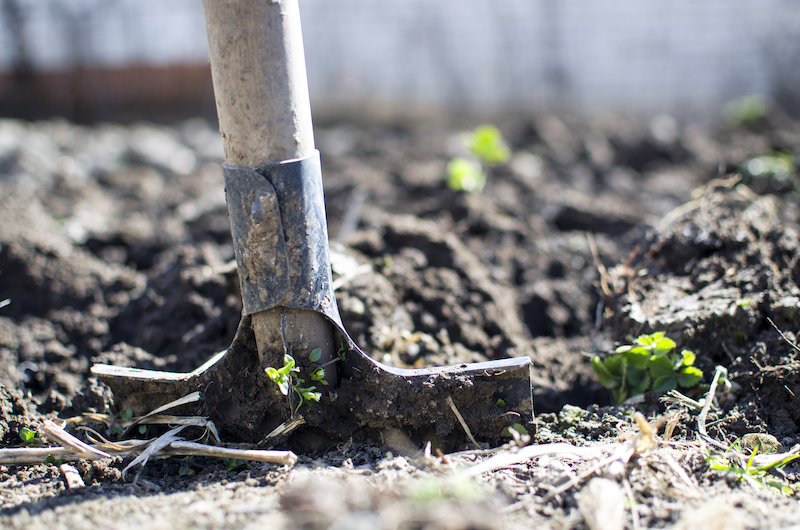You can’t beat growing your own. Knowing when and how to sow your seeds is essential if you want to reap a bountiful harvest. But knowing the facts about allotment insurance is just as important. With it, you can sit back and enjoy the fruits of your labour with real peace of mind. If you don’t already have cover, or you’re looking for a better deal, read on…
Good for your health and good for your wallet – allotments are regaining popularity as the ‘grow your own’ trend gathers pace. You can grow fruit and vegetables on it to turn into tasty meals. You could devote a portion to growing flowers and enjoy cut blooms in your home. Or you could even use it for livestock like chicken. There are currently around 330,000 allotments in the UK according to The National Allotment Society. But with waiting lists growing, it’s estimated that at least 90,000 more are needed. If you’re one of the lucky ones with an allotment, it’s not just what to plant that you need to think about. You may enjoy the pleasure of home grown food, but renting an allotment can leave you facing large financial costs if something goes wrong.
Why do I need allotment insurance?
There are three main areas of risk covered by allotment insurance:
- Public liability
- Theft
- Damage
Public liability
You might tend to your plot carefully and ensure it is safe. But if someone has an accident because of something to do with your allotment they can sue you. There are lots of potential trip hazards, from fallen peasticks to watering cans on paths. And tools like forks and rakes, or garden chemicals can be even more dangerous. Public liability insurance covers your legal costs including any compensation payout that is awarded. Many parish and local councils insist that allotment holders have at least £5million public liability insurance. Even if your landlord doesn’t, this essential insurance can give you real peace of mind that you won’t face huge legal fees if there is an accident.
Remember, there’s public access on allotment sites so it’s difficult to keep people out. Even if you haven’t given someone permission to access your plot and it is fenced off, they can still sue you if an accident occurs. It’s also worth bearing in mind that public liability insurance is essential if you organise any sort of community clearing up day at your allotment. With it, you can be reassured that if there is an accident you’re covered if someone gets accidently hurt.
Theft or malicious damage
Allotment holders must always be vigilant as their plot can be a target for vandals and thieves. Allotments are especially vulnerable to theft and damage as they tend to be in relatively secluded, out of the way spots. You might think that this would be more an annoyance than a financial drain. But spend a few minutes to tot up the value of your tools and equipment and you may be surprised. If you have livestock on your allotment, such as chicken, ducks or geese, insurance will pay out to replace any that are stolen or escape. It’s also possible to arrange for insurance to cover the costs of replacing plants that are damaged.
Other damage
Falling branches from trees due to high winds or storms and flooding can cause severe damage to your plants, tools and equipment, and any outbuildings. Insurance covers you financially to put this damage right.
Do I have to take out allotment insurance?
Many landlords insist that you hold appropriate insurance for your allotment. It normally forms part of your tenancy agreement, so double check if you’re not sure. If allotment insurance is not a stipulated requirement, it can still be considered a prudent option given the potential costs if something unforeseen does happen.
Is my allotment covered by my home insurance?
Your home insurance won’t normally automatically cover your allotment. However, it is always worth checking with your provider first, as there’s no sense spending out twice. It may be possible to add you allotment onto your home insurance as an extra. Speak to your broker to find out if that is the most cost effective way to get cover.
Will my allotment insurance cover my shed?
Your allotment insurance can be tailored to cover a shed or greenhouse if you have one. If you keep chicken or bees on the site it can also be adapted to cover your hen house or hive. If any of these structures get damaged, it covers the costs of repair or replacement. It also covers the cost of damage or theft of any contents you keep inside, such as tools.
There are also extra steps you can take to help reduce the risk of theft. Relatively inexpensive devices like padlocks on doors make it harder for thieves to break in. And if you chain up your tools inside, it makes it even trickier. Although this might involve an initial outlay, it can save you money in the long run. That’s because you can help keep your insurance premiums as low as possible by remaining claim free.
How can I find affordable allotment insurance?
If you want to find the most affordable cover for your allotment you’ll need to shop around. You won’t find allotment insurance on comparison websites because it is specialist. Instead, you’ll need to call as many insurance companies as you can, or ask an independent broker like Park Insurance to do this for you.
At Park Insurance, we have negotiated a competitive scheme that’s designed just for allotment holders. We have a strong reputation and over 30 years experience in the industry, so you can trust that we will give you the level of cover that you need to stay protected.
If you want to find out more, please call our friendly team on 0117 955 6835 or get in touch.

